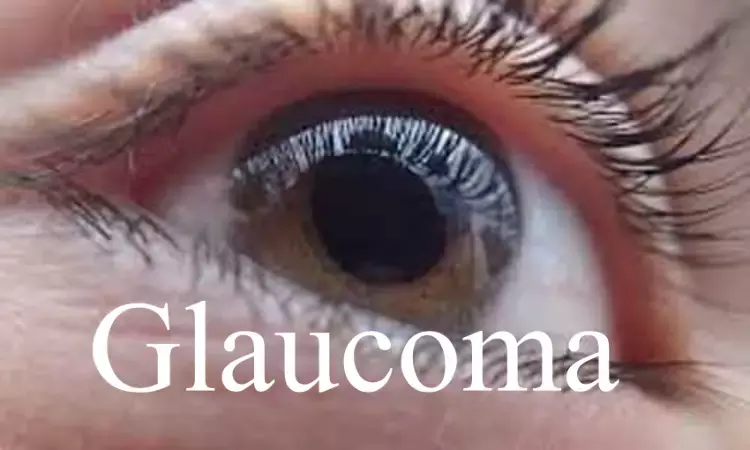- Home
- Medical news & Guidelines
- Anesthesiology
- Cardiology and CTVS
- Critical Care
- Dentistry
- Dermatology
- Diabetes and Endocrinology
- ENT
- Gastroenterology
- Medicine
- Nephrology
- Neurology
- Obstretics-Gynaecology
- Oncology
- Ophthalmology
- Orthopaedics
- Pediatrics-Neonatology
- Psychiatry
- Pulmonology
- Radiology
- Surgery
- Urology
- Laboratory Medicine
- Diet
- Nursing
- Paramedical
- Physiotherapy
- Health news
- Fact Check
- Bone Health Fact Check
- Brain Health Fact Check
- Cancer Related Fact Check
- Child Care Fact Check
- Dental and oral health fact check
- Diabetes and metabolic health fact check
- Diet and Nutrition Fact Check
- Eye and ENT Care Fact Check
- Fitness fact check
- Gut health fact check
- Heart health fact check
- Kidney health fact check
- Medical education fact check
- Men's health fact check
- Respiratory fact check
- Skin and hair care fact check
- Vaccine and Immunization fact check
- Women's health fact check
- AYUSH
- State News
- Andaman and Nicobar Islands
- Andhra Pradesh
- Arunachal Pradesh
- Assam
- Bihar
- Chandigarh
- Chattisgarh
- Dadra and Nagar Haveli
- Daman and Diu
- Delhi
- Goa
- Gujarat
- Haryana
- Himachal Pradesh
- Jammu & Kashmir
- Jharkhand
- Karnataka
- Kerala
- Ladakh
- Lakshadweep
- Madhya Pradesh
- Maharashtra
- Manipur
- Meghalaya
- Mizoram
- Nagaland
- Odisha
- Puducherry
- Punjab
- Rajasthan
- Sikkim
- Tamil Nadu
- Telangana
- Tripura
- Uttar Pradesh
- Uttrakhand
- West Bengal
- Medical Education
- Industry
AI-powered glaucoma screening test delivers rapid results

A new rapid screening test for glaucoma could help advance early detection of the disease, a leading cause of irreversible blindness.
Developed by a research team of engineers and ophthalmologists led by RMIT University in Melbourne, Australia, the test uses infra-red sensors to monitor eye movement and can produce accurate results within seconds.
About 80 million people worldwide have glaucoma, with more than 111 million expected to be living with the disease by 2040.
About 1 in 50 Australians will develop glaucoma in their lifetime. The loss of sight is usually gradual and 50% of people with glaucoma do not know they have it.
Currently, glaucoma is diagnosed through a 30-minute eye pressure test delivered by an ophthalmologist.
The new AI-powered test takes just 10 seconds to show if there is a risk of glaucoma, making it ideal for use in a national screening program.
Lead researcher Professor Dinesh Kumar, RMIT, said early detection, diagnosis and treatment could help prevent blindness, so making screening faster and more accessible was critical.
"This research will allow a non-contact, easy-to-use and low-cost test that can performed routinely at general clinics," he said.
"It could also promote a community-wide screening program, reaching people who might not otherwise seek treatment until it's too late."
How it works
The pioneering technology differentiates between glaucoma and healthy eyes by analysing changes in pupil size.
In the study, published in IEEE Access, pupils were measured 60 times per second using a low-cost commercial eye tracker.
Under ambient light conditions, patients looked at a computer screen while custom software measured and analysed specific changes in their pupil size.
The software then compared the results against existing samples of glaucoma and healthy eyes to determine the risk of glaucoma.
Dr Quoc Cuong Ngo, RMIT, said the new tech was faster and better than any similar AI-based approach.
"Our software can measure how the pupil adjusts to ambient light and capture minuscule changes in the shape and size of the pupil," he said.
"Existing AI glaucoma tests require the patient to be perfectly still for up to 10 minutes. Our tech does the job in 10 seconds, without compromising on accuracy."
Next steps
The team is now looking to adapt the technology to work with smartphone cameras instead of the eye tracker used in the study.
They are also looking for a commercial partner ahead of a clinical trial planned for 2022 – email biosignalslab@rmit.edu.au.
With further research, the software could also be extended to detect other neurological conditions.
https://ieeexplore.ieee.org/document/9584846/
Hina Zahid Joined Medical Dialogue in 2017 with a passion to work as a Reporter. She coordinates with various national and international journals and association and covers all the stories related to Medical guidelines, Medical Journals, rare medical surgeries as well as all the updates in the medical field. Email: editorial@medicaldialogues.in. Contact no. 011-43720751
Dr Kamal Kant Kohli-MBBS, DTCD- a chest specialist with more than 30 years of practice and a flair for writing clinical articles, Dr Kamal Kant Kohli joined Medical Dialogues as a Chief Editor of Medical News. Besides writing articles, as an editor, he proofreads and verifies all the medical content published on Medical Dialogues including those coming from journals, studies,medical conferences,guidelines etc. Email: drkohli@medicaldialogues.in. Contact no. 011-43720751


